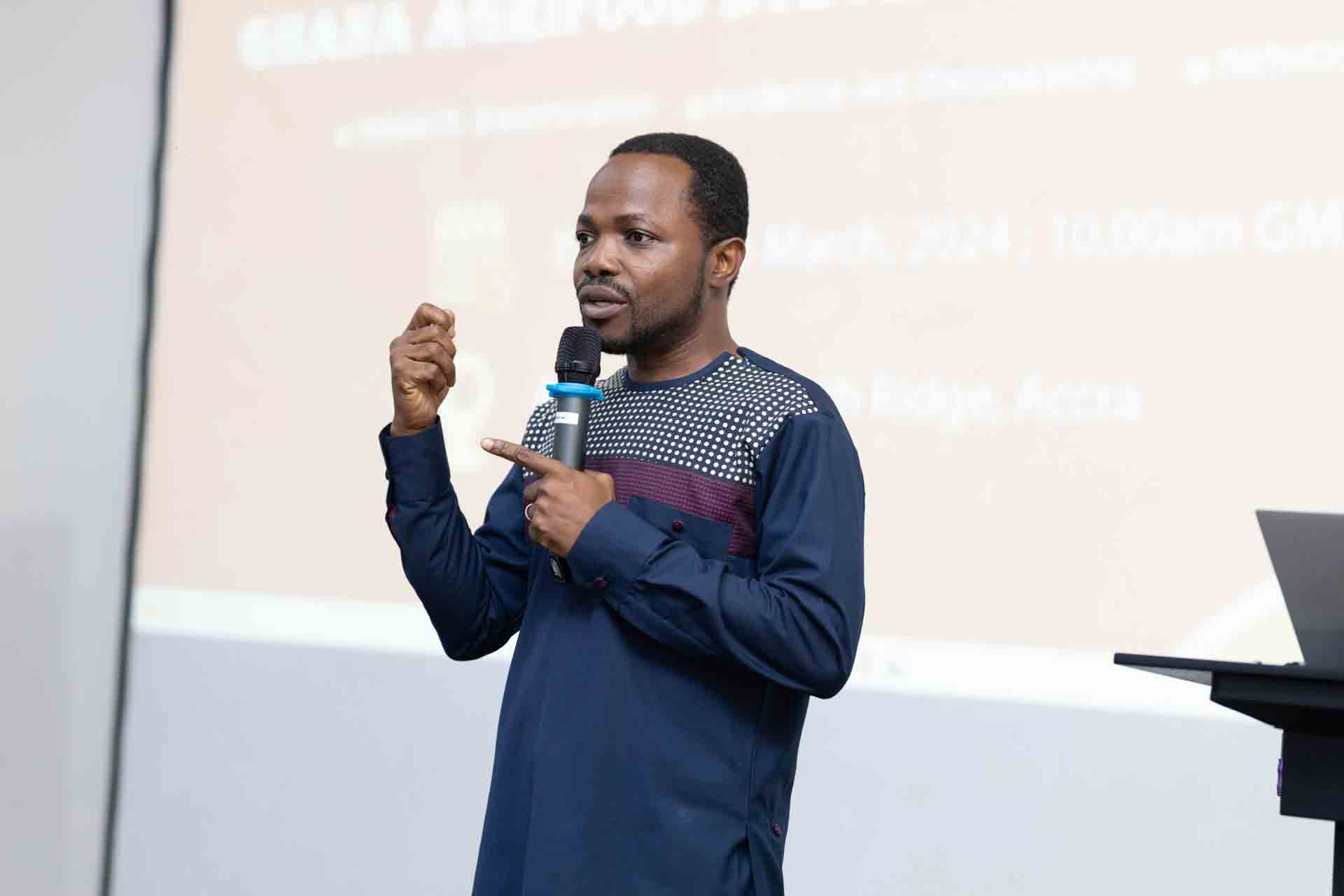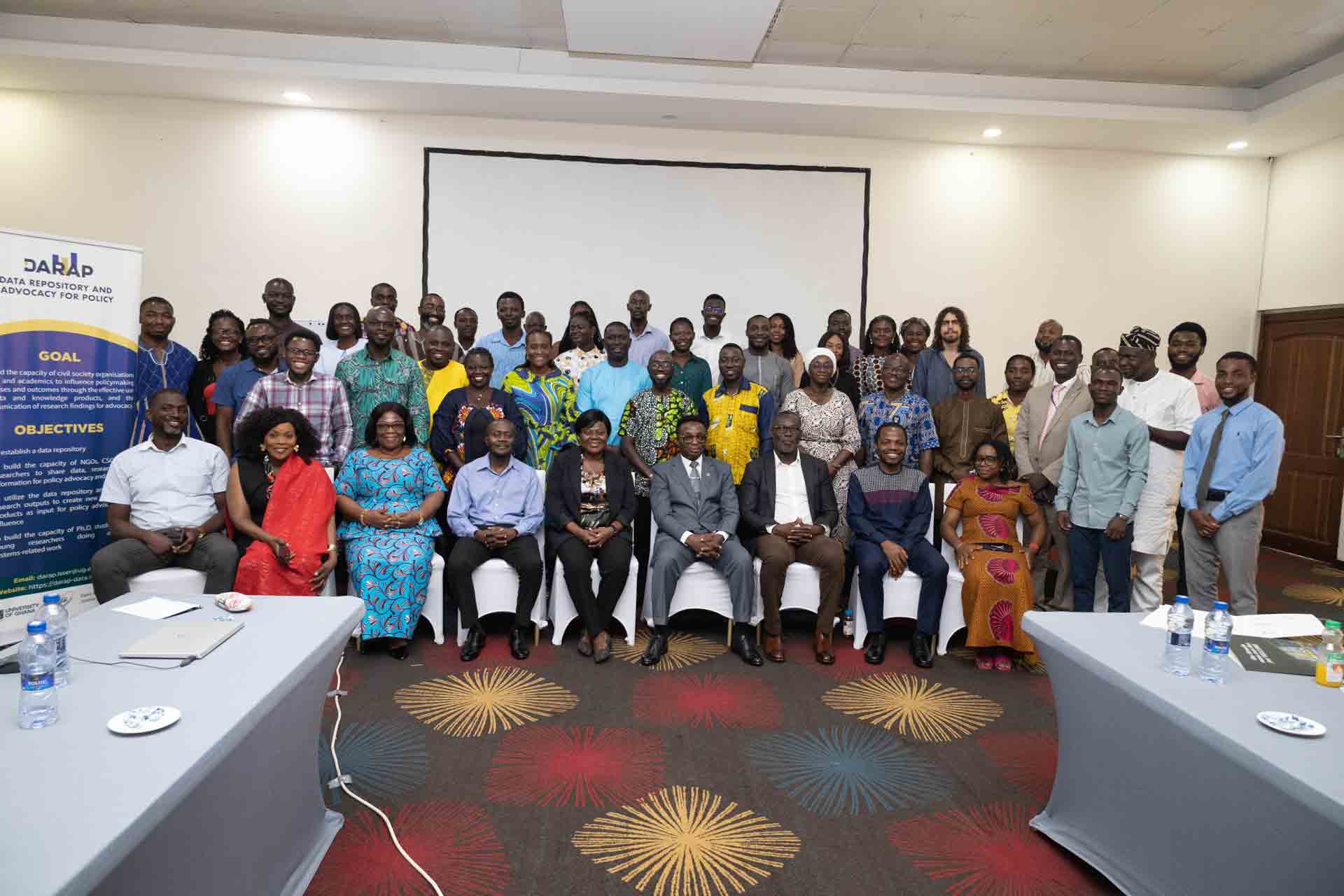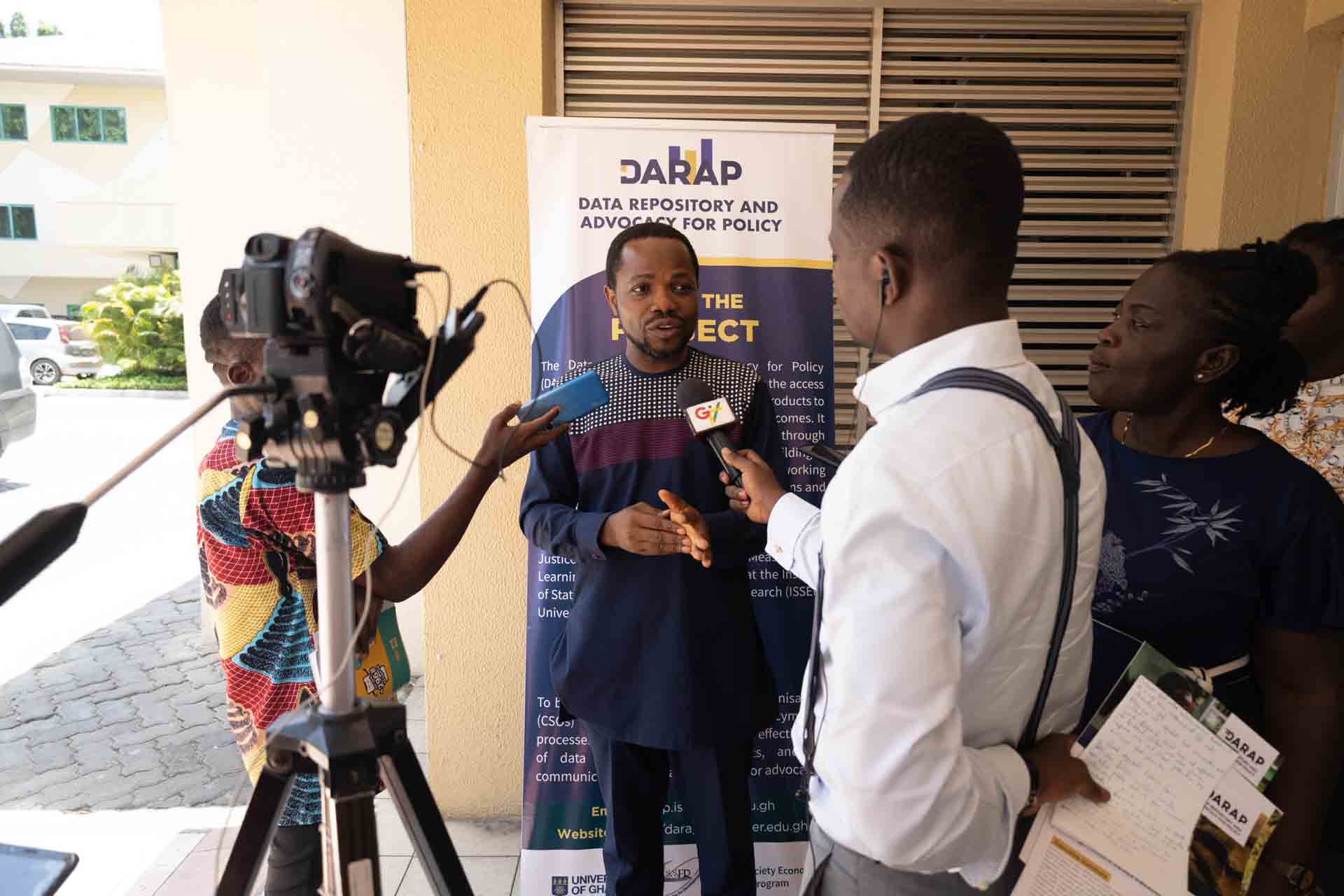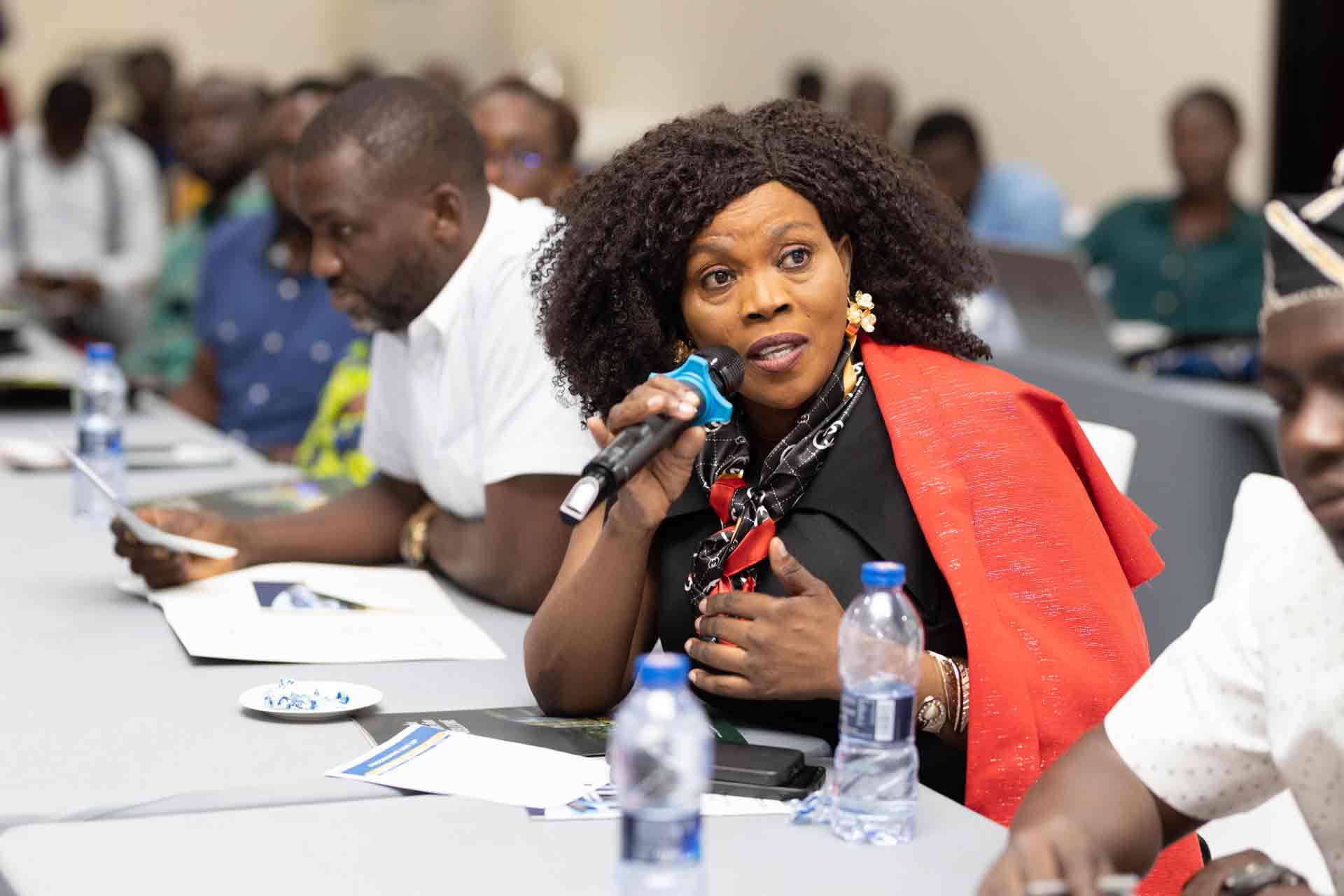The valuable contributions of participants enriched the discussions and paved the way for future collaborations
In a bid to catalyze transformative change in Ghana's agrifood landscape, the Data Repository and Advocacy for Policy (DARAP) project organized a major forum, bringing together key sector players to deliberate on pressing issues and innovative solutions vital to advance the country’s agrifood systems.
Chaired by Prof. Charles Tortoe, Director of the Council for Scientific and Industrial Research (CSIR), the event drew a diverse range of participants, including academics, government agencies, political parties, non-governmental organizations (NGOs), civil society organizations (CSOs), and the media. It featured evidence-driven discussions, enriching participants' understanding and contributing to ongoing debates and decision-making processes within the agricultural sector.
“It’s heartening to see the enthusiastic turnout from policymakers and stakeholders across all sectors of the agricultural value chain; their continued interest and engagement with our work is evidence of the pertinence of DARAP’s mission to Ghana’s agriculture and food security goals,” Dr. Fred Dzanku, Coordinator of the DARAP project, remarked.

Dr. Dzanku set the tone for the forum by providing a comprehensive overview of DARAP’s mission and objectives. His emphasis on establishing a centralized data hub to streamline data storage, management efforts, and promote data-driven research and evidence-based policy advocacy underscored DARAP's pivotal role in shaping Ghana's agrifood landscape.
Presentations unveil research findings
Dr. Kofi Takyi Asante, of ISSER, University of Ghana, presented findings from a joint study with his colleague Dr. Dzifa Torvikey analyzing the interplay between political economy dynamics and agrifood policies in Ghana. Their analysis underscored the imperative of bridging domestic governance issues and addressing global geopolitical realities to foster sustainable agricultural growth.
Prof. Michael Adu from the University of Cape Coast (UCC) outlined the implications of cultural transitions in food consumption patterns. His assessment of adaptive strategies amidst shifting dietary preferences emphasized the need for policy frameworks that safeguard traditional staples while embracing evolving culinary trends.
The third presentation by Prof. Saa Dittoh, a consultant affiliated with the University of Development Studies (UDS), emphasized the paramount importance of ensuring food quality and safety amidst mounting health concerns. His recommendations, spanning regulatory enhancements to consumer awareness campaigns, echoed a collective commitment to safeguarding public health.
Dr. Freda Asem, a Senior Lecturer at the Department of Agricultural Economics and Agribusiness, University of Ghana spoke on food loss and food waste, highlighting the staggering toll of food loss and waste on global and national food security. Her recommendations, encompassing infrastructural investments and behavioral shifts, underscored the need to minimize food loss and waste to achieve a more resilient and sustainable agrifood ecosystem.
Fostering dialogue and collaboration
Photo with reporter holding policy briefs (caption: The forum also provided an opportunity to engage with the media and disseminate policy briefs developed as part of the project.)
Participants actively engaged in two rounds of Q&A sessions. These exchanges not only enriched the discussions but also underscored the importance of diversifying research dissemination channels to include channels that support local language communication and involvement of local communities. The interactions also touched on the need for researchers to increase collaboration in research dissemination and advocacy efforts as a means to amplify the voice of research and deepen policy impact.
Mobilizing collective efforts for change
Group photo (caption: The event attracted a diverse range of participants from various sectors of the agricultural value chain.)
In his closing remarks, the Chair, Prof. Tortoe thanked the participants for their commitment to driving agrifood system reform. He urged stakeholders to harness the insights and networks gained from the forum, channeling them into concerted actions that would propel Ghana's agrifood sector toward resilience and sustainability.
The DARAP Ghana agrifood systems research dissemination and policy forum was held on March 26, 2024 at Alisa Hotel in Accra, providing a platform for stakeholders to engage in evidence-led conversations and networking, and renew their resolve to confront the challenges and seize the opportunities inherent in Ghana's agrifood landscape.
For policy briefs summarizing the outcome of the studies, please click here.




